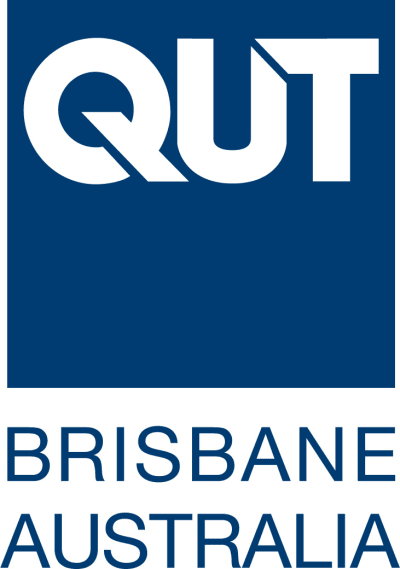
Master of Digital Communication
Queensland University of Technology

Key Information
Campus location
Kelvin Grove, Australia
Languages
English
Study format
Blended, On-Campus
Duration
1 - 2 year
Pace
Full time
Tuition fees
AUD 32,400 / per year
Application deadline
Request info
Earliest start date
Feb 2025
Introduction
If having the flexibility to work across many industries appeals to you, a career in digital communication may be an excellent fit. You will learn new skills that are applicable to various media forms, including social media, data analytics, artificial intelligence and visualisation.
Highlights
- The QUT School of Communication is ranked as Australia’s leading school for communication and media studies, and among the top schools in the world. QUT Media and Communication is ranked 1st in Australia and 15th in the world in the 2022 QS World University rankings.
- Analyse and create data-driven compelling stories via diverse social media platforms ( Facebook, Instagram, Twitter and WeChat).
- Develop a deep understanding of the digital creative economy and how platforms and artificial intelligence are transforming the media and communication environment.
- Learn how to use and build tools to deliver advanced data visualisation and analysis of audience behaviour.
- Design, implement and evaluate a research project that integrates and applies the advanced knowledge and skills developed across the course with a scholarly academic or industry focus.
Why choose this course?
Digital transformation is impacting global media and communication production, distribution and consumption at unprecedented levels. This data and automation driven disruption is increasingly delivering content across personal mobile devices, placing pressure on traditional institutions and giving rise to new and emerging forms of content production and distribution.
The Master of Digital Communication develops future-focused specialised skills and advanced knowledge in digital communication as well as an applied understanding of the digital creative economy and how digital platforms are transforming the global media environment.
Real-world learning
The course is organised with an emphasis on authentic real-world learning that prepares you to creatively and effectively address a range of global and international challenging communication scenarios. You will benefit from a direct alignment with world-leading digital media research from the QUT Digital Media Research Centre.
Real-world learning is embedded through elective options like internships, real-world or industry projects, study tours, or university-wide electives. Throughout the program you will be supported and encouraged to build a professional digital brand across multiple platforms.
Learn from the best
QUT is a world leader in digital communication, media and journalism. Its research and teaching is pushing boundaries and developing new ideas through transdisciplinary thinking in a fast-changing global creative economy.
The QUT School of Communication is ranked as Australia’s leading school for communication and media studies, and among the top schools in the world. QUT Media and Communication is ranked 1st in Australia and top 20 in the world in the 2023 QS World University rankings.
The Digital Media Research Centre (DMRC) conducts world-leading research for a creative, inclusive and fair digital media environment. The DMRC provides access to groundbreaking research infrastructure and capabilities in digital methods such as social media analytics, and a dynamic and supportive research training environment. QUT is also the only university in Australia that has received the top ranking for communication and media studies in every Excellence in Research Australia (ERA) round since 2010.
Admissions
Curriculum
To meet the course requirements for the Master of Digital Communication, you must complete a total of 192 credit points, made up of:
- core units (108 credit points)
- either:
- the project pathway, including one core unit (12 credit points), one core project unit (24 credit points) and 48 credit points of electives (unit options)
- the advanced project pathway, including one core unit (12 credit points), two core project units (48 credit points) and 24 credit points of electives (unit options).
If you have a relevant prior degree you may be able to complete the course in 1 or 1.5 years. See the Requirements tab for information about eligibility.
Many of the units in this course use intensive teaching periods. These intensive teaching periods are offered over shorter durations such as 5 weeks so you can focus your study on a smaller number of units. The intensive mode means that you will have increased flexibility in fitting study around your other commitments. Access more information about intensive teaching period dates (Flexible teaching periods).
What is the difference between the Project Pathway and the Advanced Project Pathway?
You might like to consider the Project Pathway if you want to undertake an appropriately scaled project that can be completed in 24 credit points which may take the form of a scholarly or industry report on a topic, issue or problem (approximately 6000-8000 words). This could include a suitable work-based project (subject to approval).
The pathway also prepares you for further study in a Master of Philosophy. Completing a 24-credit-point project also provides flexibility for you to diversify your study by completing up to 48 credit points of elective units.
The Advanced Project Pathway will give you the opportunity to undertake a more ambitious and deeper research 48-credit-point project on a suitable topic, question or problem (approximately 12000-15000 words). This pathway also prepares you for further study in a Doctor of Philosophy. Typically the Advanced Project Pathway will involve a project twice the scope and time commitment of the Project Pathway. You can also diversify your study by completing up to 24 credit points of elective units.
Flexible delivery
The course is offered with delivery modes designed to fit with your busy lifestyle with units delivered through an intensive delivery mode, offering the balance of short, sharp delivery while allowing flexibility to balance work, family, study and personal needs. This approach, including pre-work, interactive workshops and webinars, and further self-guided learning, allows you to learn at your own pace.
Gallery
Program Outcome
Today’s communication professional needs to have the skills and knowledge to operate in a new and disruptive digital media environment as the digital communication technologies of tomorrow may be different to those we use now.
Through this program, you will learn new skills including social media storytelling, data analytics for communication, artificial intelligence and data visualisation. This knowledge and critical thinking will take your career to the next level and prove invaluable to employers in industries that rely on digital communication.
Benefiting from a cross-disciplinary approach with collaboration across a range of fields you will deepen your expertise in areas such as data analytics, law and policy studies, management or marketing.
Career Opportunities
Graduates from our courses have successful careers in government, industry and the community sector. The Master of Digital Communication opens up exciting and creative media and communication roles in a range of industry sectors with globally transferable skills enabling employment anywhere across the globe.
Your opportunities will be expanded through cross-disciplinary electives with opportunities to deepen your skills in an area such as data science, law, management or marketing.
Possible careers
- Digital communication specialist
- Digital content designer
- Digital content producer
- Digital copywriter
- Digital marketing manager
- Digital media designer
- Digital stakeholder engagement consultant
- Media researcher
- Online media specialist
- Social media brand specialist
- Social media campaign advisor
- Social media communication manager
- Social media manager
- Social media project officer